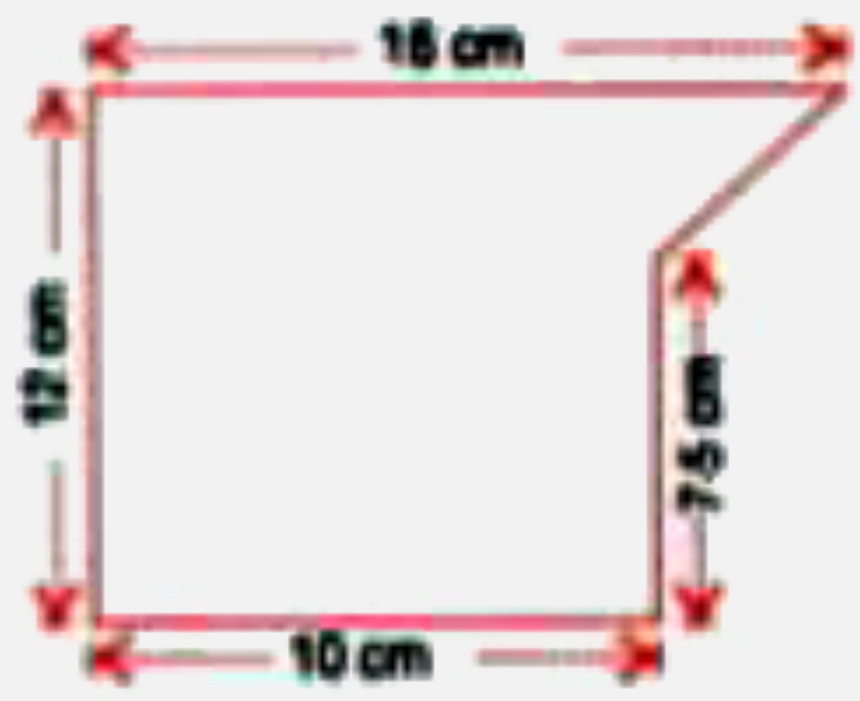A piece of stone of mass 15.1 g is first immersed in a liquid and it weighs 10.9 gf. Then on immersing the piece of stone in water, it weighs 9.7 gf. Calculate the weight of the piece of stone in air
To solve the problem, we need to determine the weight of the piece of stone in air based on the given mass. The weight of an object is calculated using the formula:
Weight=mass×g
where g is the acceleration due to gravity. In this case, we will consider the weight in grams-force (gf), where g is approximately 9.81 m/s², but for our calculation, we can directly use the mass in grams since we are looking for the weight in gf.
1. Identify the mass of the stone: The mass of the stone is given as 15.1 g.
2. Calculate the weight of the stone in air:
Weight in air=mass×g
Since we are using grams and want the weight in gf, we can directly take the mass as the weight in gf:
Weight in air=15.1gf
Thus, the weight of the piece of stone in air is 15.1 gf.
Final Answer:
The weight of the piece of stone in air is 15.1 gf.
---
Weight in air=mass×g
Since we are using grams and want the weight in gf, we can directly take the mass as the weight in gf:
Weight in air=15.1gf
The weight of the piece of stone in air is 15.1 gf.
Topper's Solved these Questions
- FLUIDSBOOK - ICSECHAPTER - FLUIDSEXERCISE - TOPIC 2 (3 Marks Questions )
23 Videos
- ELECTRICITY AND MAGNETISM BOOK - ICSECHAPTER - ELECTRICITY AND MAGNETISM EXERCISE - TOPIC 2 Magnetism (4 Marks Questions )
6 Videos
- HEAT AND ENERGYBOOK - ICSECHAPTER - HEAT AND ENERGYEXERCISE - EXERCISE -6(D) Multiple Choice Question)
4 Videos
Similar Questions
A piece of stone of mass 15.1 g is first immersed in a liquid and it weighs 10.9 gf. Then on immersing the piece of stone in water, it weighs 9.7 gf. Calculate the volume of the piece of stone
View SolutionA piece of stone of mass 15.1 g is first immersed in a liquid and it weighs 10.9 gf. Then on immersing the piece of stone in water, it weighs 9.7 gf. Calculate the relative density of stone
View SolutionA piece of stone of mass 15.1 g is first immersed in a liquid and it weighs 10.9 gf. Then on immersing the piece of stone in water, it weighs 9.7 gf. Calculate the relative density of the liquid.
View SolutionA metallic bob weights 50g in air. If it is immersed in a liquid at a temperature of 25∘C, it weights 45g . When the temperature of the liquid is raised to 100∘C, it weights 45.1g. Calculate the coefficient of cubical expansion of the liquid. Given that coefficient of cubical expansion of the metal is 12×10−6.∘C−1.
View SolutionA metal piece weighs 200gf in air and 150 gf when completely immersed in water.
Calculate the relative density of the metal piece.
View SolutionA certain block weighs 15 N in air. But is weighs only 12 N when completely immersed in water. When immersed completely in another liquid, it weighs 13 N. Calculate the relative density of (i) the block and (ii) the liquid.
View SolutionThe cross-section of a piece of metal 4m in length is shown below. Calculate:

the volume of the piece of metal in cubic centimetres
If 1 cubic centimetre of the metal weights 6.6 g, calculate the weight of the piece of metal to the nearest kg.
View SolutionA solid weighs 120 gf in air and 105 gf when it is completely immersed in water. Calculate the relative density of solid.
View SolutionMass of a stone is 50g. When it is immersed in water the level rises from 45mL to 75mL. Determine the density of the stone.
View SolutionA body weighs W1 gf in air and when immersed in a liquid, it weighs W2 gf, while it weighs W3 gf on immersing it in water. Find (i) Volume of the body (ii) upthrust due to liquid (iii) relative density of the solid and (iv) relative density of the liqudi.
View Solution
